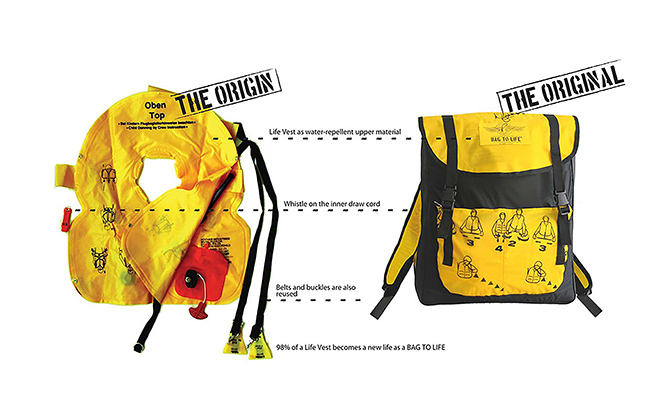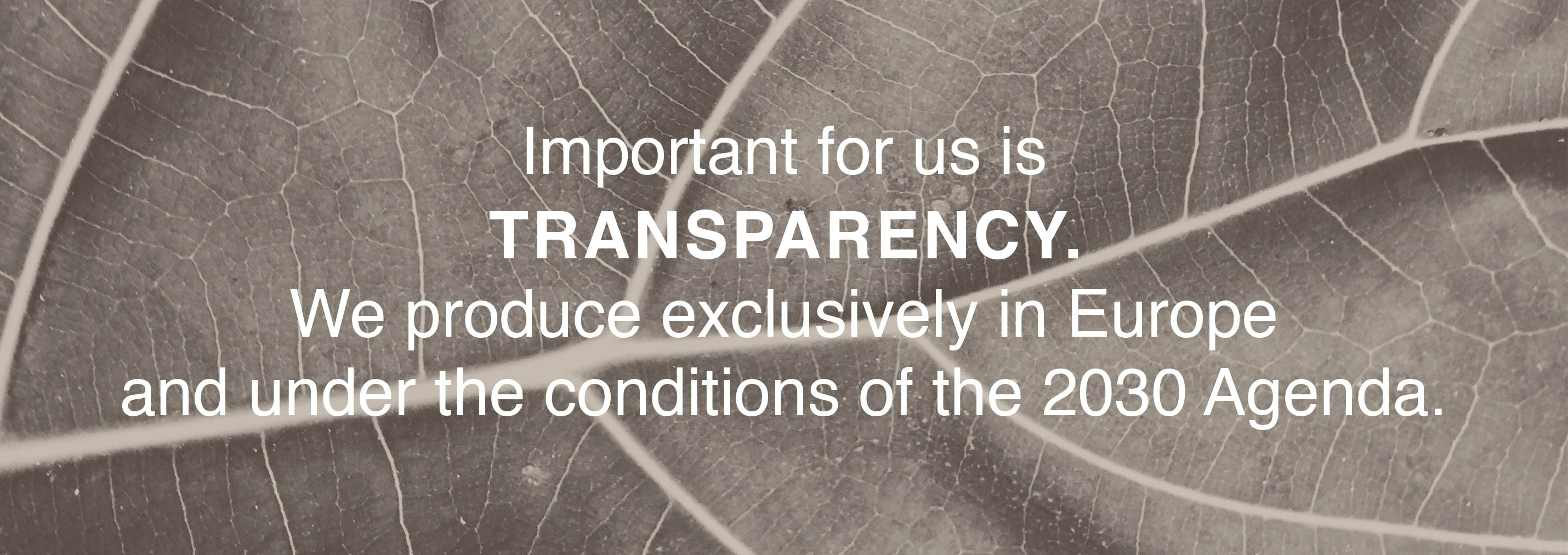
What is upcycling?
Upcycling is the process of using used materials or worn parts that are created during production and making something new from them. Upcycling contributes to resource conservation and thus also to nature and climate protection.
As the name suggests, upcycling gives used objects a new life cycle ("cycling"), which in the best case even represents an upgrading of the object ("up"). Even the supposedly sustainable fabrics are not as sustainable as the use of upcycled material! The GOTS certified textiles, such as organic cotton, rank behind the recycled material in terms of sustainability. Why? Quite simply, every production of new material ties up raw materials and emits CO2. So why not avoid new production and use the material you already have?

Our BAG TO LIFE brand
The lifejacket is an integral part of the aircraft equipment and saves lives in an emergency. But this emergency occurs ( luckily!) only in the rarest of cases. This means the lifejacket is a permanent passenger without use. After a maximum of 10 years of unused flight time, the lifejackets must be renewed for safety reasons. So what happens to the unused lifejackets? They are thrown away or burnt. We think: This is not necessary! The material is unused, in new condition and has all the advantages, from water-repellent properties to durability and lightness. That's why we upcycle and give the lifejacket a new life cycle. However, we don't just process lifejackets, but all kinds of materials.
Do you have leftovers from your production process? Material or even finished products that cannot be used? Then here is your chance to create a sustainable product and improve your green footprint.
Advantages of upcycling
Who tells stories better than the original material itself? Emotionalising the products creates lasting customer loyalty
Every reuse of materials effectively saves CO2. Even GOTS certified organic cotton is not as sustainable as products made from upcycled materials. Because everything that is newly produced automatically has higher CO2 emissions.
Ethical factors are the new currency for the next generation's purchasing power, for recruiting new employees and for your competitiveness.


